Hip Hop Posts on Crowch
Georgia is the undisputed leader of Junior Eurovision. After its victory in 2024, the country is once again preparing to host the contest on its home stage, showcasing to the world its musical mastery and the potential of its young performers.
🏆 A Home Stage: Tbilisi in the Spotlight Again
In 2025, Junior Eurovision will take place on 13 December in Tbilisi, at the Small Hall of the Olympic Palace — the same venue that hosted the contest in 2017. This marks the second time Georgia will welcome Junior Eurovision, confirming its reputation as an experienced and capable host.
GPB, the Georgian Public Broadcaster, has announced that all young artists, their families, and delegations will arrive well in advance to rehearse, participate in cultural events, and experience the warm hospitality of the country.
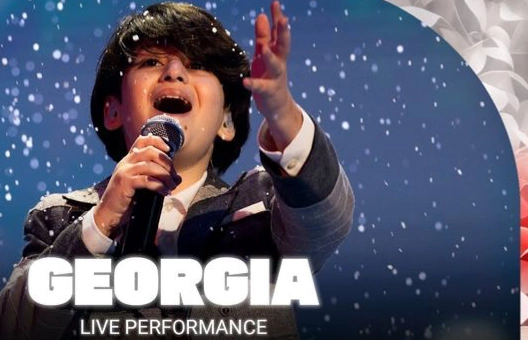
🌟 From Victory to Hosting
The success of Andria Putkaradze in 2024 with the touching ballad “To My Mom” opened the door for Georgia’s next big step. Andria’s story — a boy from Batumi who started singing at the age of two, learned piano, and was raised by his grandparents — touched the hearts of audiences across Europe. His victory, the fourth in Georgia’s history, made the country the record-holder of Junior Eurovision.
👧👦 Who’s Next: Selection Through Ranina
Georgia will once again select its representative through Ranina, the national children’s talent show that has already produced several successful JESC participants.
For 2025, ten young contestants have been confirmed:
- Mariam Muzashvili (9)
- Sandro Abesadze (11)
- Sesili Lemonjava (11)
- Gabriel Bodaveli (12)
- Anita Abgariani (10)
- Barbara Sandikidze (11)
- Demetri Maisuradze (10)
- Lile Mchedlishvili (8)
- Lazare Kapanadze (11)
- Nia Lashkhia (11)
This lineup demonstrates Georgia’s continued commitment to nurturing child talent and giving them a platform to shine on an international stage.
🌍 Why This Matters for Georgia
- Cultural Leadership: Hosting the contest strengthens Georgia’s role as a hub for creativity and youth development.
- Social Mission: The stories of these children become symbols of national pride and inspiration.
- International Dialogue: The event provides an opportunity to showcase Georgian hospitality and culture while strengthening ties with Europe.
🔮 What to Expect
In the coming months, we can look forward to:
- The announcement of the official slogan, stage concept, and hosts.
- A rich cultural program leading up to the live show.
- The energy, authenticity, and heartfelt performances that Georgia is known for.
🏆 Conclusion
Georgia is once again preparing for a unique musical celebration — this time as the host of Junior Eurovision 2025. From past victories to the promise of future stars, the country remains true to its tradition of supporting young performers, staying authentic, and bringing musical magic to the international stage.
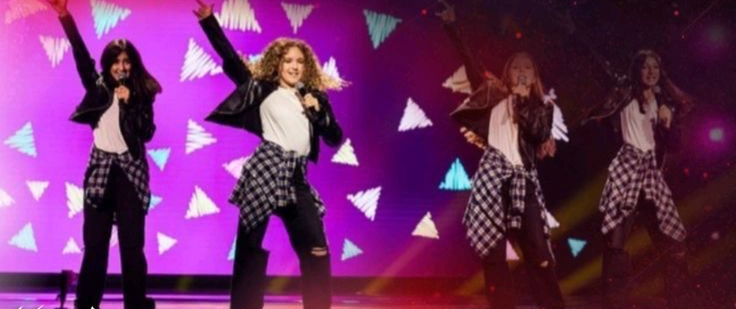
Georgia once again takes the stage of Junior Eurovision — this time not only as a participant, but also as the proud host. After its latest victory, the country secured the right to welcome the contest, further cementing its status as the most successful nation in JESC history.
🏅 Georgia’s Record of Success
- Georgia debuted at Junior Eurovision in 2007 and has participated every year since.
- Victories: 2008 (Bzikebi — "Bzz.."), 2011 (Candy — "Candy Music"), 2016 (Mariam Mamadashvili — "Mzeo"), and 2024 (Andria Putkaradze — "To My Mom"). That makes a total of 4 wins, the highest in the contest’s history.
- The 2024 triumph by Andria Putkaradze established Georgia as the undisputed leader of Junior Eurovision.
🎶 Junior Eurovision 2025 in Tbilisi
- The contest will take place on 13 December 2025 in Tbilisi, marking the second time Georgia hosts the event (the first was in 2017).
- Venue: the Small Hall of the Olympic Palace (New Sports Palace), already confirmed by the organizers.
- Up to 20 countries are expected to participate, with delegations arriving about 10 days before the show to rehearse and take part in cultural events.
- The Georgian government has allocated more than €2.5 million (around ₾8 million) for hosting the contest.
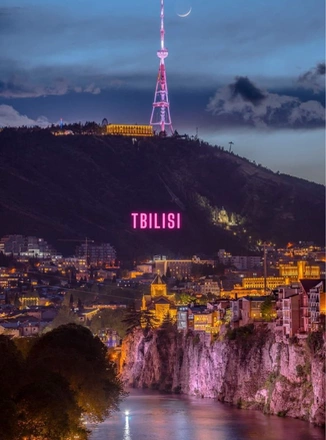
🌍 Why This Matters for Georgia
- Hosting the contest strengthens Georgia’s role as a cultural and creative hub capable of staging major international events.
- Junior Eurovision is not only a competition, but also a platform to showcase national talent, expand international ties, and present Georgia as both hospitable and innovative.
- After Andria Putkaradze’s moving 2024 victory with “To My Mom”, Georgia once again proved its ability to nurture outstanding young performers and support them on a global stage.
🔮 What’s Next
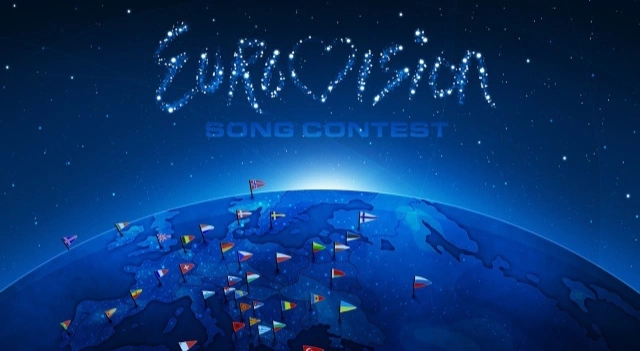
- In the coming months, more details will be revealed: the official slogan, stage design, hosts, ticket information, and promotional campaigns.
- GPB (Georgian Public Broadcaster) has promised an even more ambitious and emotionally charged show than in 2017.
- Follow the hashtag #JESC2025 for teasers, announcements, and behind-the-scenes updates.
🏆 Conclusion
By hosting Junior Eurovision 2025 after its record-breaking fourth win, Georgia reaffirms its cultural ambition and pride. The December contest in Tbilisi is set to become one of the brightest chapters in the history of Junior Eurovision — a celebration of young talent, creativity, and the spirit of a nation that lives through music.
For Georgia, Eurovision has long become something more than just an international contest. It is a unique stage where music turns into the language of diplomacy, and every performance becomes an opportunity to declare national culture. Over the years, the country has gone from a bright debut to leadership in Junior Eurovision, and this journey reflects not only the success of individual artists but also the development of Georgia’s entire music industry.
Debut and Rapid Start
In 2007, Georgia appeared at Eurovision for the first time. Young singer Sopho Khalvashi performed Visionary Dream, where Western sound blended with national motifs. For the international audience, this was a revelation: the country introduced itself as modern while carefully preserving its traditions.
Shaping a National Image
Each Georgian performance at Eurovision is an attempt to balance European pop culture with Georgian uniqueness. For example, Sofia Nizharadze (Shine, 2010) and the band Eldrine (One More Day, 2011) not only achieved high results but also demonstrated that Georgian performers have their own style — powerful energy, emotional depth, and original stage presence.
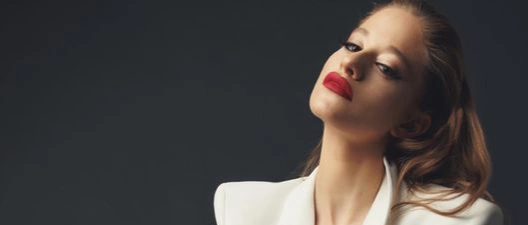
Challenges and Trials
Not every year was successful. Georgia sometimes failed to reach the final, faced criticism, and struggled to find new styles. Yet even these difficulties became valuable lessons. Each artist on stage contributed to the growth of Georgian pop music and opened new opportunities for younger musicians.
Politics and Culture
The country’s Eurovision story is also linked to political events. The withdrawal in 2009 due to disagreements with contest rules became a symbol that Eurovision is not only about music but also a platform where global views collide. However, despite such episodes, Georgia has always returned to the stage, proving that the main goal is to share its culture with Europe.
Junior Eurovision — A Special Pride
While victory in the adult contest has not yet been achieved, in Junior Eurovision Georgia became a true leader. Four victories made the country a record holder. This is not only a reason for national pride but also proof that a whole generation of talented young performers is growing up, ready to represent Georgia on the “adult” stage in the future.
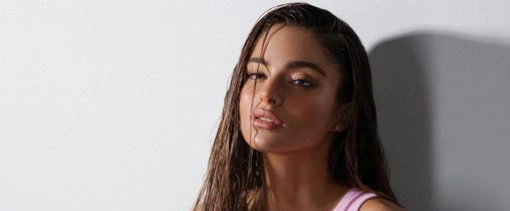
Why It Matters for the Country
Eurovision helps shape Georgia’s cultural image abroad. Each performance becomes a calling card that tells millions of viewers about the country’s language, music, and heritage. For the younger generation, participation in the contest serves as an example that Georgian culture can be both modern and in demand worldwide.
Conclusion
Today, Eurovision for Georgia is a stage for dialogue, inspiration, and ambition. Even without a victory in the adult contest yet, the country’s many vibrant performances, along with leadership in Junior Eurovision, prove that Georgia has its own voice — and it will certainly be heard.
Freddie Gibbs and The Alchemist are back—and this time, they’re taking us deeper into the world they created with their acclaimed 2020 album Alfredo. The highly anticipated sequel, Alfredo 2, drops on July 25 and promises to be another masterclass in lyrical precision and elite production. With a star-studded guest list including Anderson .Paak, Larry June, and JID, the album also arrives with a slick short film that takes the duo’s storytelling to new visual heights.
🌀 A Sequel Worth the Hype
The original Alfredo earned the pair a Grammy nomination and critical praise for its effortless blend of soulful beats and gritty, introspective bars. Alfredo 2 builds on that legacy but expands the soundscape. The Alchemist, known for his cinematic and sample-heavy style, crafts 14 moody yet magnetic tracks that serve as the perfect canvas for Gibbs’ unflinching delivery and razor-sharp storytelling.
The album opens with “1995,” a nostalgic but hard-hitting track that sets the tone with dusty loops and reflective lyrics. From there, it moves through playful titles like “Lemon Pepper Steppers” and “Empanadas,” before diving into collaborations that push the project into new territory.
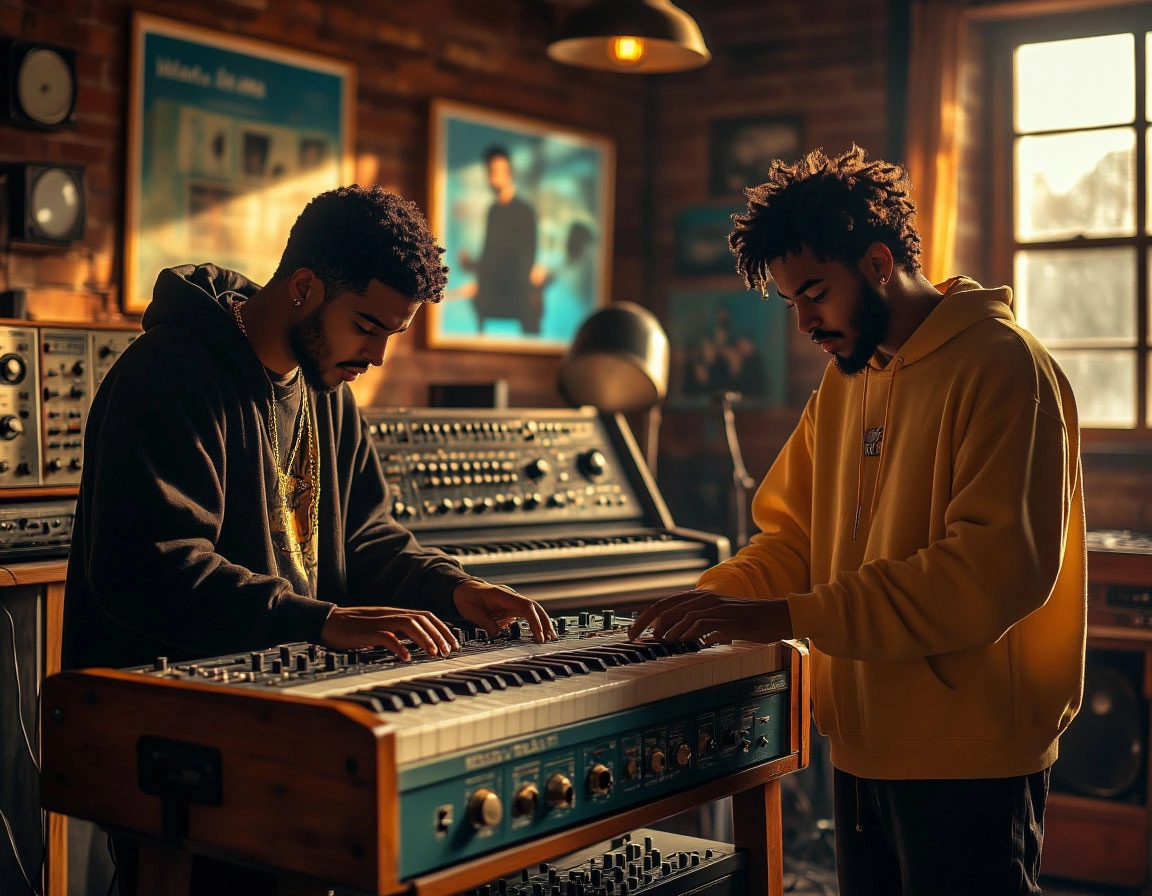
🌍 Global Vibes, Local Truths
To accompany the album, the duo released a short film directed by Nick Walker. Shot entirely in Japan, it blurs the lines between art-house cinema and hip-hop storytelling. In the film, we find Freddie Gibbs in isolation in the mountains, seemingly retired and disinterested in the game. The Alchemist shows up, urging him to return to Tokyo for unfinished business.
Once back in the urban sprawl, Gibbs is pulled into a world of decisions, temptations, and reflection. It’s a metaphor for artistic evolution, personal struggle, and the weight of legacy — themes that Alfredo 2 explores track by track.
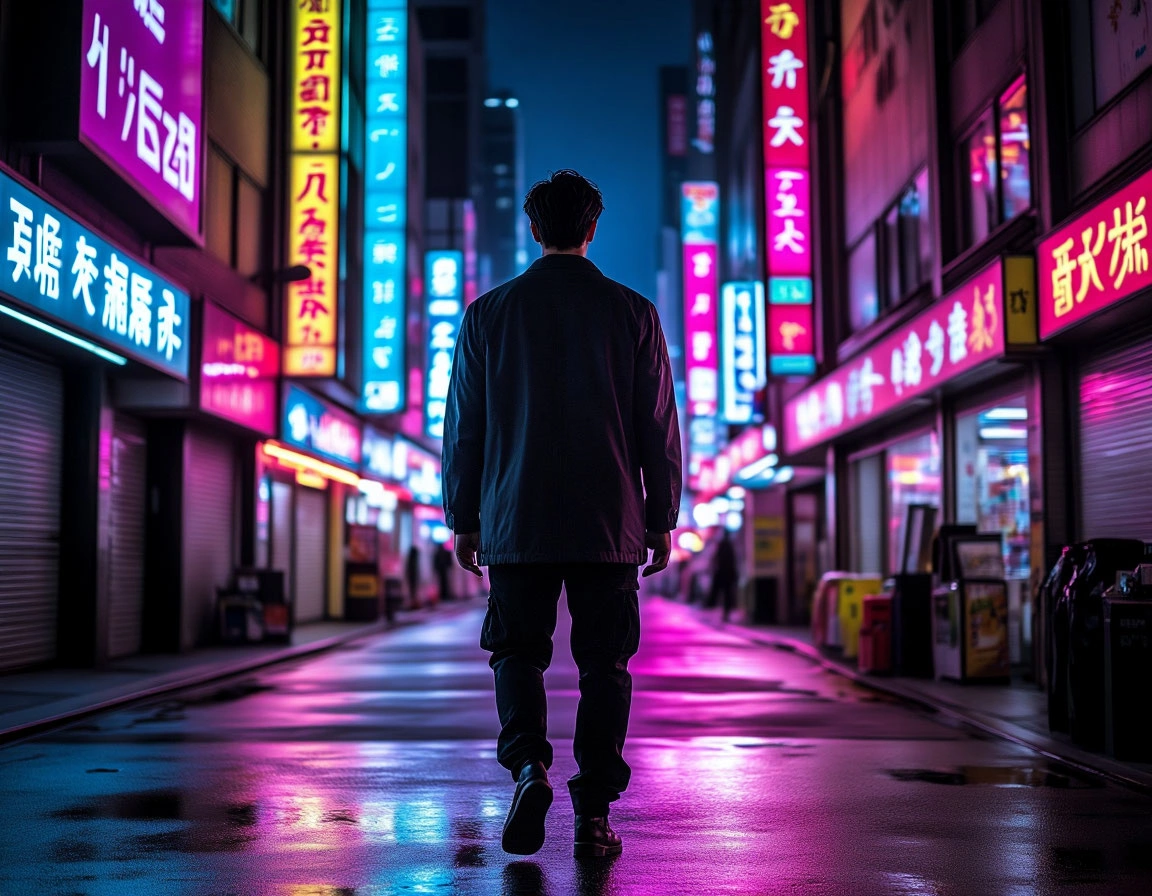
🎤 Guest Appearances That Deliver
Each featured artist on Alfredo 2 brings their A-game. Anderson .Paak appears on “Ensalada,” adding his signature groove and soul. Larry June joins Gibbs on “Feeling,” a track laced with West Coast flavor and smooth luxury talk. Meanwhile, JID brings his rapid-fire, acrobatic flow to “Gold Feet,” elevating the record’s energy with lyrical agility.
These collaborations don’t feel like filler—they expand the album’s emotional and stylistic range, offering lightness, introspection, and swagger in equal measure.
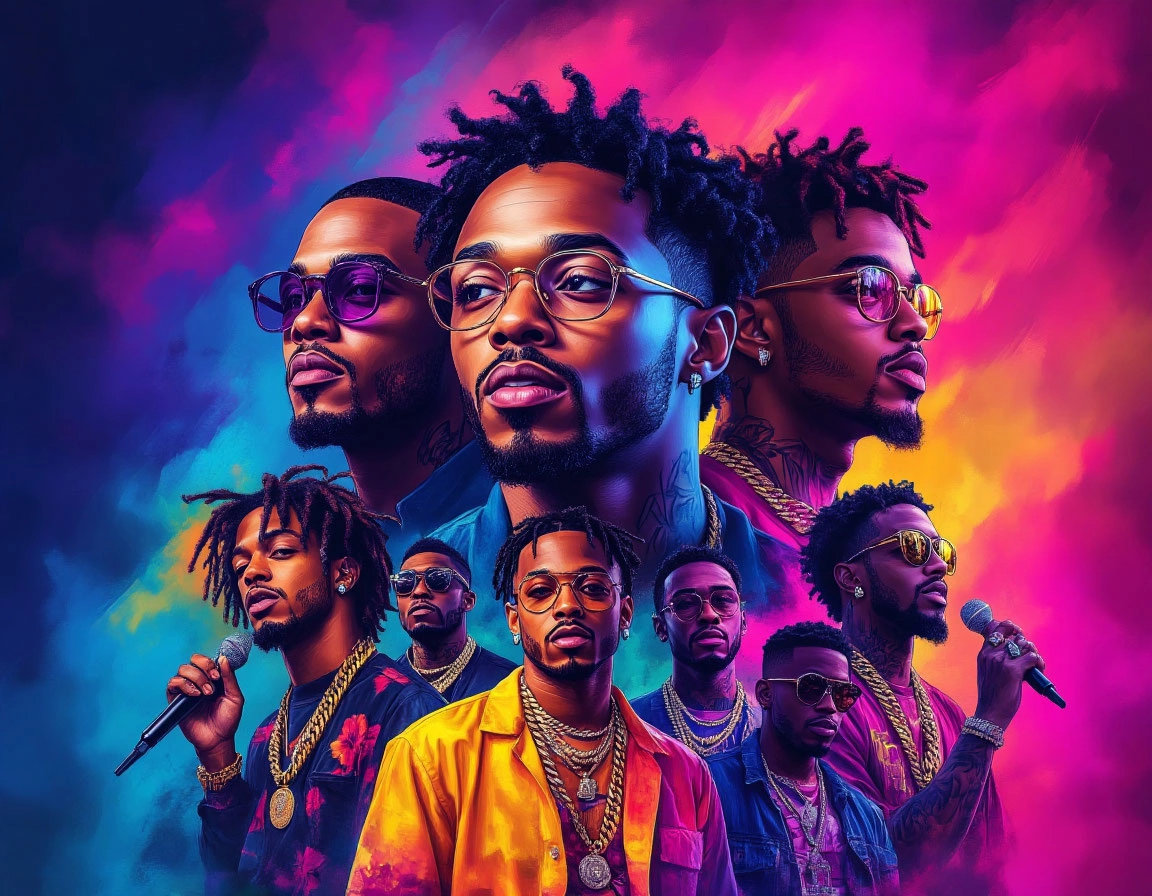
🧠 Themes & Tracklist Highlights
Lyrically, Gibbs moves fluidly between past and present—reminiscing on his days hustling while meditating on his current place in the industry. On “I Still Love H.E.R.,” he pays homage to hip-hop culture itself, while “Shangri La” and “Lavish Habits” explore the tension between peace and materialism.
The Alchemist, as always, delivers beats that feel dug from vinyl crates in alternate universes—gritty, textured, and hauntingly beautiful. His production here is not just a backdrop but a co-narrator of the album’s story.
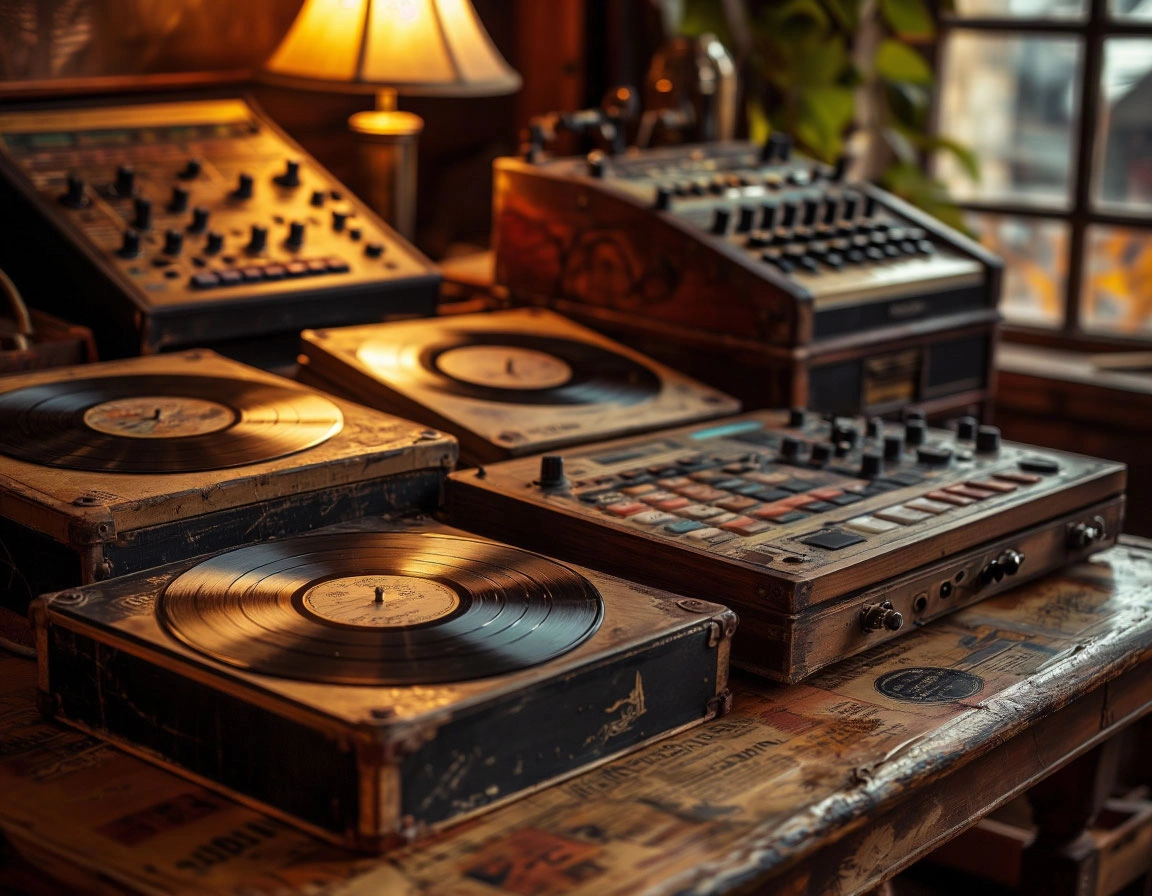
🏔️ Still Climbing Mountains
The closing track, “A Thousand Mountains,” feels like a summation of the entire Alfredo saga. It’s cinematic, introspective, and raw—a quiet thunderstorm of bars and beats that suggests this might not be the end, but rather another step in a longer journey.
Freddie Gibbs and The Alchemist aren’t just revisiting old territory—they’re elevating it. Alfredo 2 is a rare sequel that actually enriches its predecessor, giving fans both continuity and evolution.

🎶 Full Alfredo 2 Tracklist:
- 1995
- Mar-a-Lago
- Lemon Pepper Steppers
- Ensalada (ft. Anderson .Paak)
- Empanadas
- Skinny Suge II
- Feeling (ft. Larry June)
- I Still Love H.E.R.
- Shangri La
- Gas Station Sushi
- Lavish Habits
- Gold Feet (ft. JID)
- Jean Claude
- A Thousand Mountains
Few bands have left as lasting a mark on punk and grunge culture as L7. Now, four decades since their formation, the iconic all-female group is preparing to celebrate their 40th anniversary with a blowout show in their hometown of Los Angeles. Mark your calendars: on Friday, October 3, the Belasco Theater will transform into a riotous celebration of punk, power, and persistence — with help from fellow legends Lunachicks and the Brazilian dance-punk force CSS.
⚡ Four Decades of Defiance
Formed in 1985 by vocalist Donita Sparks and guitarist Suzi Gardner, L7 quickly carved out a space for themselves in the male-dominated rock scene. Their raw sound, politically charged lyrics, and unapologetic stage presence made them not just a band, but a movement. Albums like Bricks Are Heavy and Smell the Magic captured a unique fusion of punk grit and metal muscle, inspiring a generation of riot grrrls and alt-rock rebels.
Though they disbanded in 2001 after years of pushing the envelope, L7 returned in the mid-2010s, proving their fire hadn’t dimmed. Their 2019 comeback album Scatter the Rats was a loud declaration that they still had something to say — and weren’t afraid to shout it.
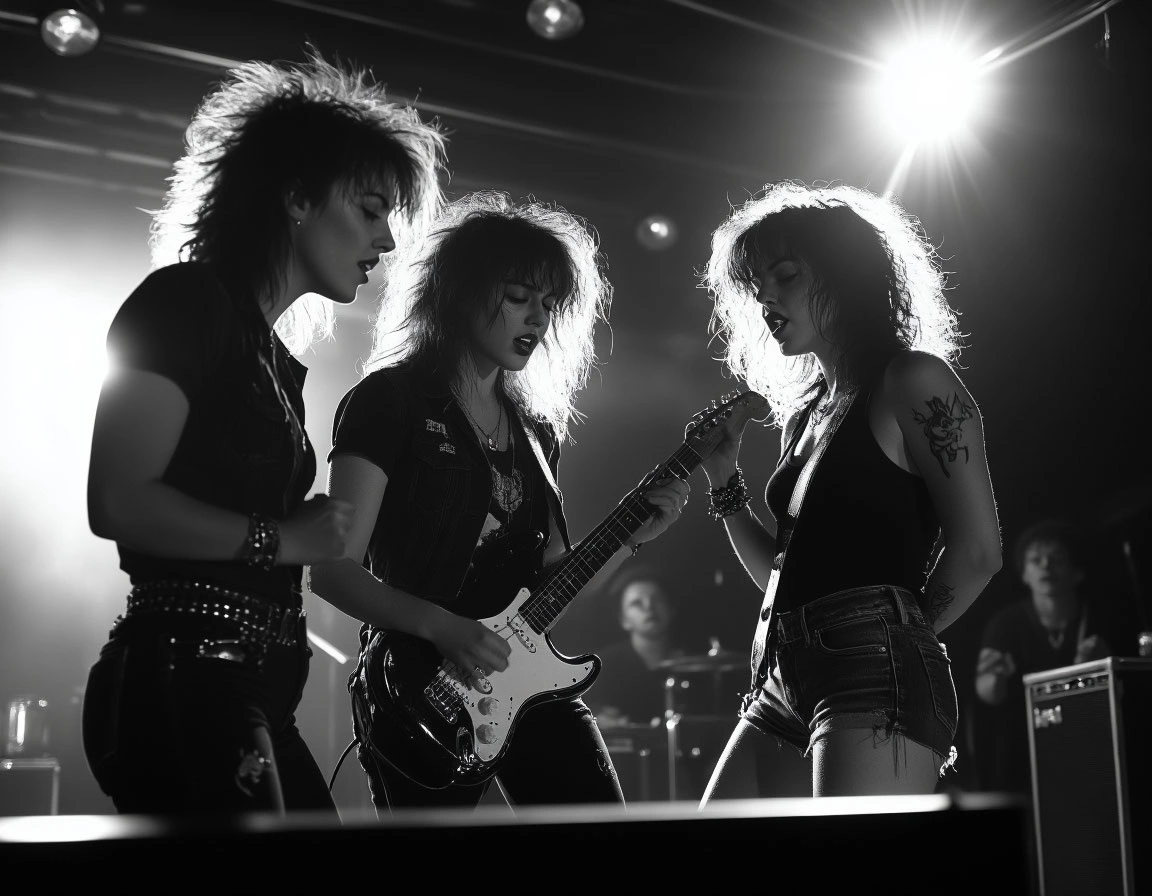
🧨 A Lineup Full of Attitude
Curated personally by Donita Sparks, the anniversary show will feature not just L7, but two other explosive acts: Lunachicks and CSS. “I think all three of our bands share a certain sense of humor, political right-on-ness, and bombastic energy,” Sparks said in a statement. “So, look out, mellow ones… you will be rocking!”
The Lunachicks — notorious for their wild performances and irreverent spirit — are a perfect fit for the event. Emerging from the late ’80s NYC punk scene, they’ve long embodied feminist rage and satire in equal measure. Meanwhile, CSS (Cansei de Ser Sexy) brings a Brazilian twist to the night, known for their danceable blend of indie rock and electroclash, paired with a mischievous, DIY ethos.
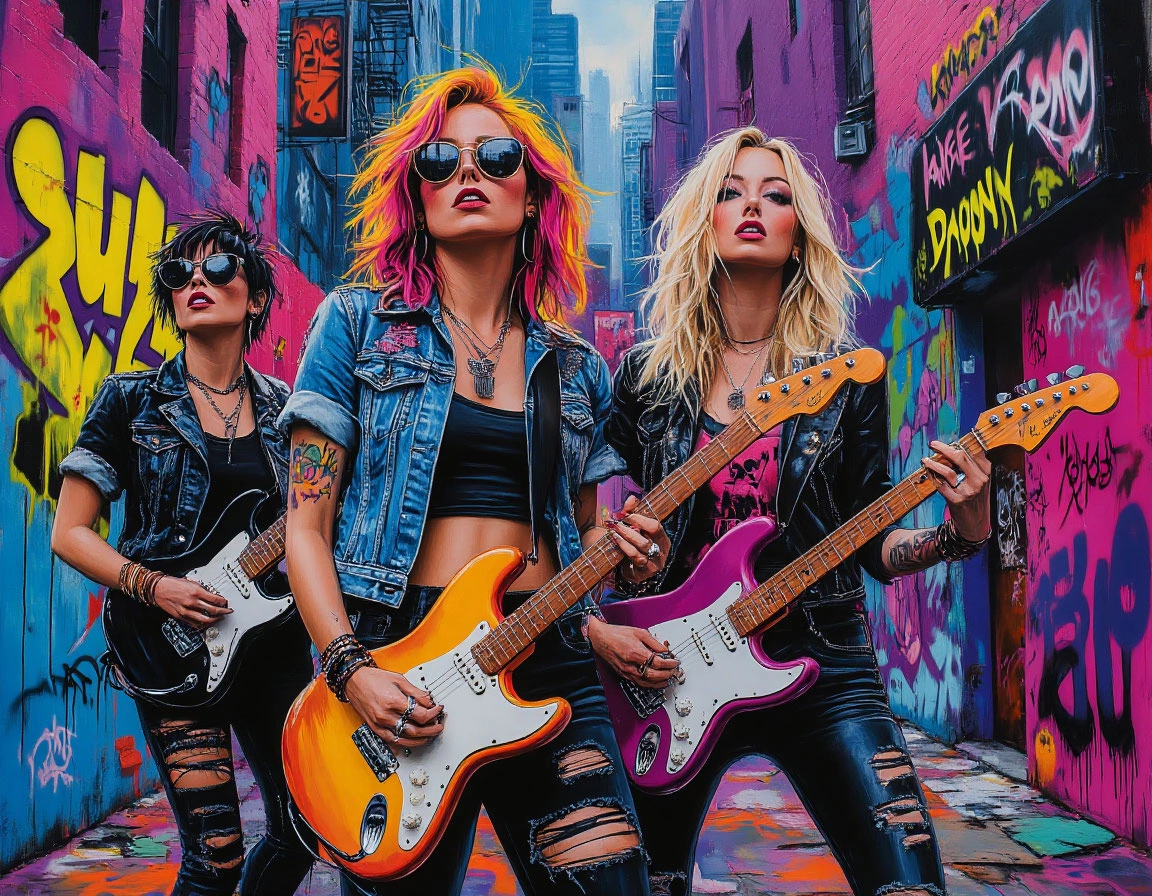
🔥 The Belasco Will Burn (Metaphorically)
Located in the heart of downtown Los Angeles, The Belasco is an intimate yet grand venue — the perfect place to host a celebration that honors four decades of underground music defiance. The date: Friday, October 3. Fans can expect a night of unfiltered rock, defiant fashion, and sisterhood-driven chaos.
More artists are expected to be added to the bill, making this a must-see event for lovers of punk history and high-octane live shows. Whether you’ve been a fan since the ’80s or discovered L7 through their recent revival, this is a moment worth experiencing.
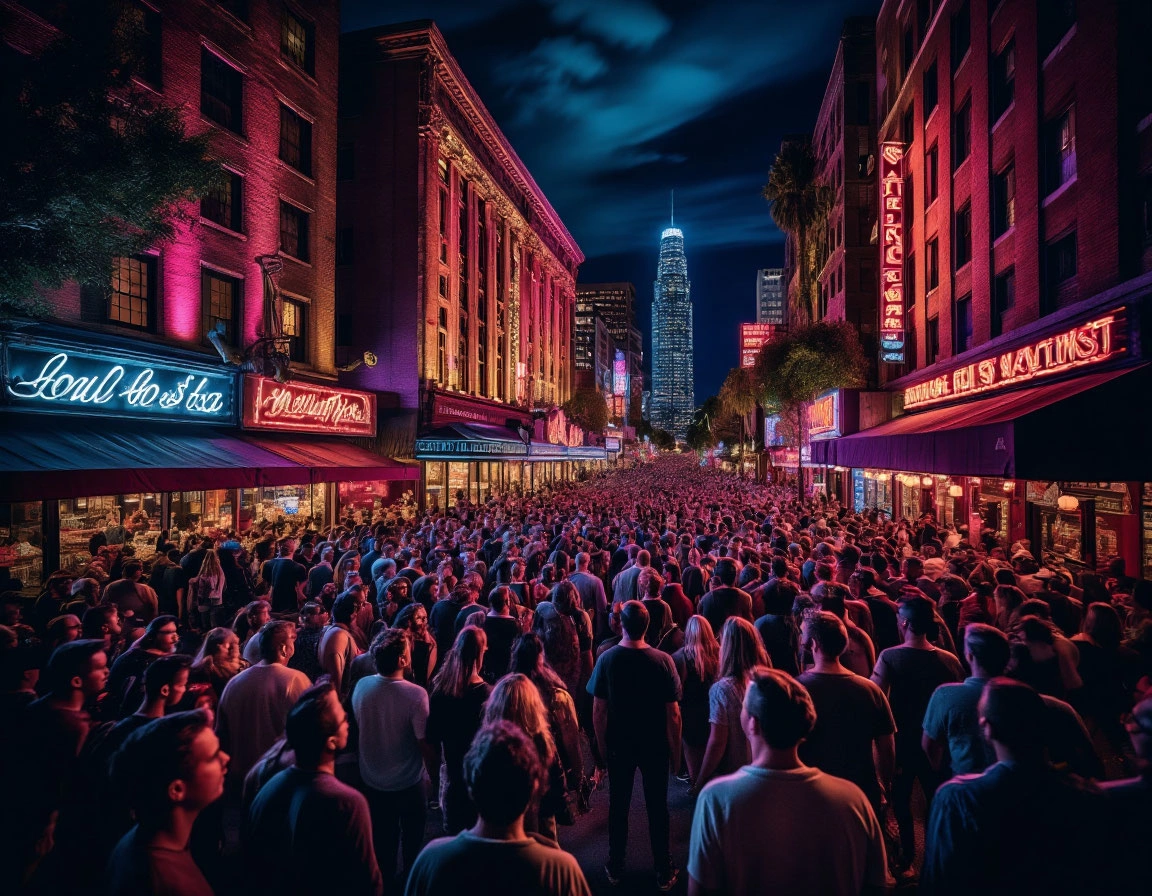
💬 Why It Still Matters
L7 has always been more than music — they’ve been about pushing back. Against norms. Against silence. Against being told to sit down and shut up. Their legacy is one of empowerment and noise, and in 2025, they’re still turning up the volume.
In a world where the cultural conversation around gender, power, and resistance is still evolving, their music feels as necessary as ever. Celebrating 40 years of L7 isn’t just about nostalgia — it’s a reminder that the punk spirit lives on, loud and proud.
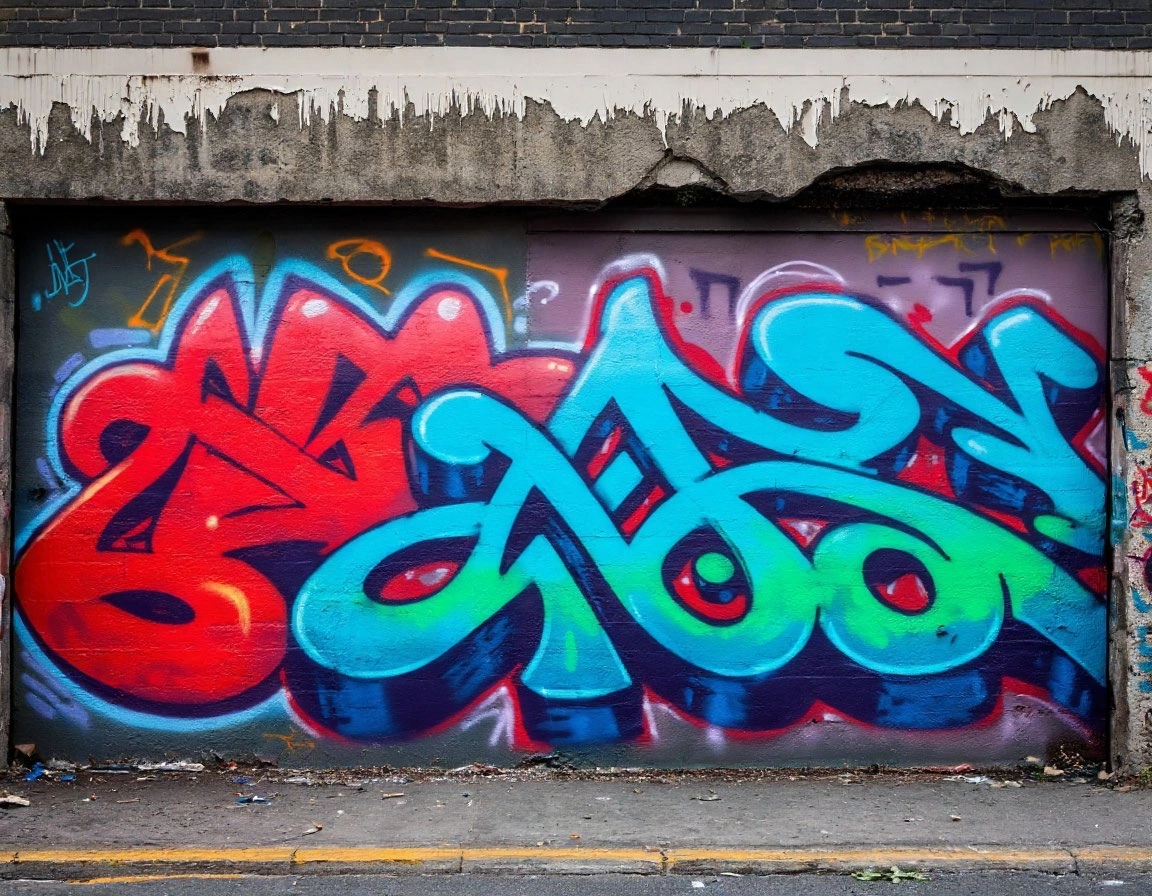
🎟️ Tickets are expected to sell out fast. So dig out your Docs, spike your hair, and get ready to scream along with three generations of rock icons. This isn’t just a concert — it’s a celebration of attitude, rebellion, and 40 years of making noise.
With the music world constantly delivering fresh and exciting sounds, staying in the loop can be overwhelming. But don't worry — we’ve rounded up the 8 most intriguing new albums that deserve a spot in your playlist right now. From major label debuts to experimental ambient collaborations, this week’s releases offer something for every taste.
🌟 Alex G – Headlights (RCA)
Genre: Indie Rock / Lo-Fi
Alex G steps into the big leagues with his first major-label release, Headlights. This marks the artist’s 10th studio album and his RCA debut. Known for intimate, strange, and emotionally raw music, Alex G blends lo-fi textures with melodic songwriting. In press statements, he calls the album a mix of “absurd twists and mundane milestones,” setting the stage for a sound that’s both grounded and surreal. Singles like “Afterlife,” “June Guitar,” and “Oranges” previewed the album's shifting emotional tones and quirky sonic palette.
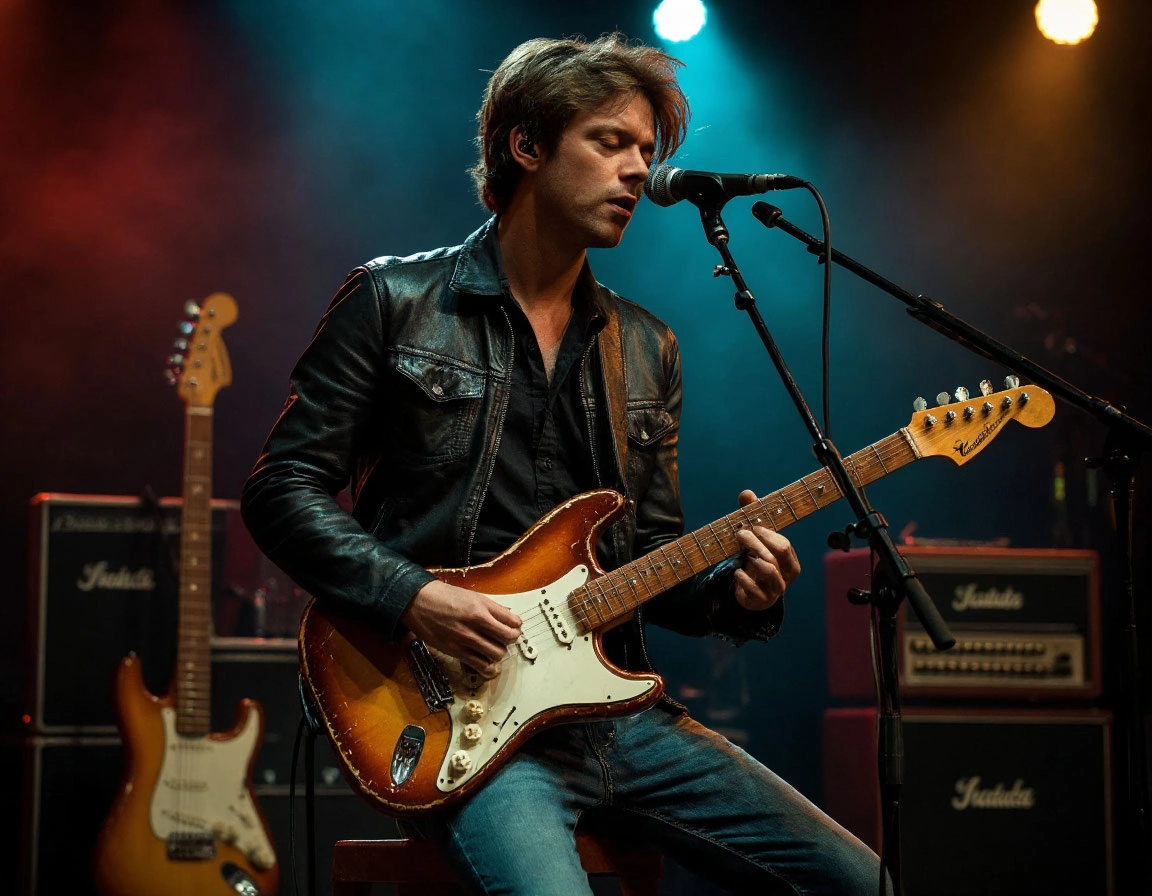
🐺 Raekwon – The Emperor’s New Clothes
Genre: Hip-Hop / East Coast Rap
Wu-Tang Clan legend Raekwon returns with a powerful new 17-track LP. The Emperor’s New Clothes features a star-studded lineup including Nas, Ghostface Killah, Method Man, and more. It's Raekwon’s first solo album since 2017, and it brings gritty New York storytelling back to the forefront. With appearances from Buffalo rap titans like Conway the Machine and Benny the Butcher, the album balances classic boom-bap vibes with fresh energy.
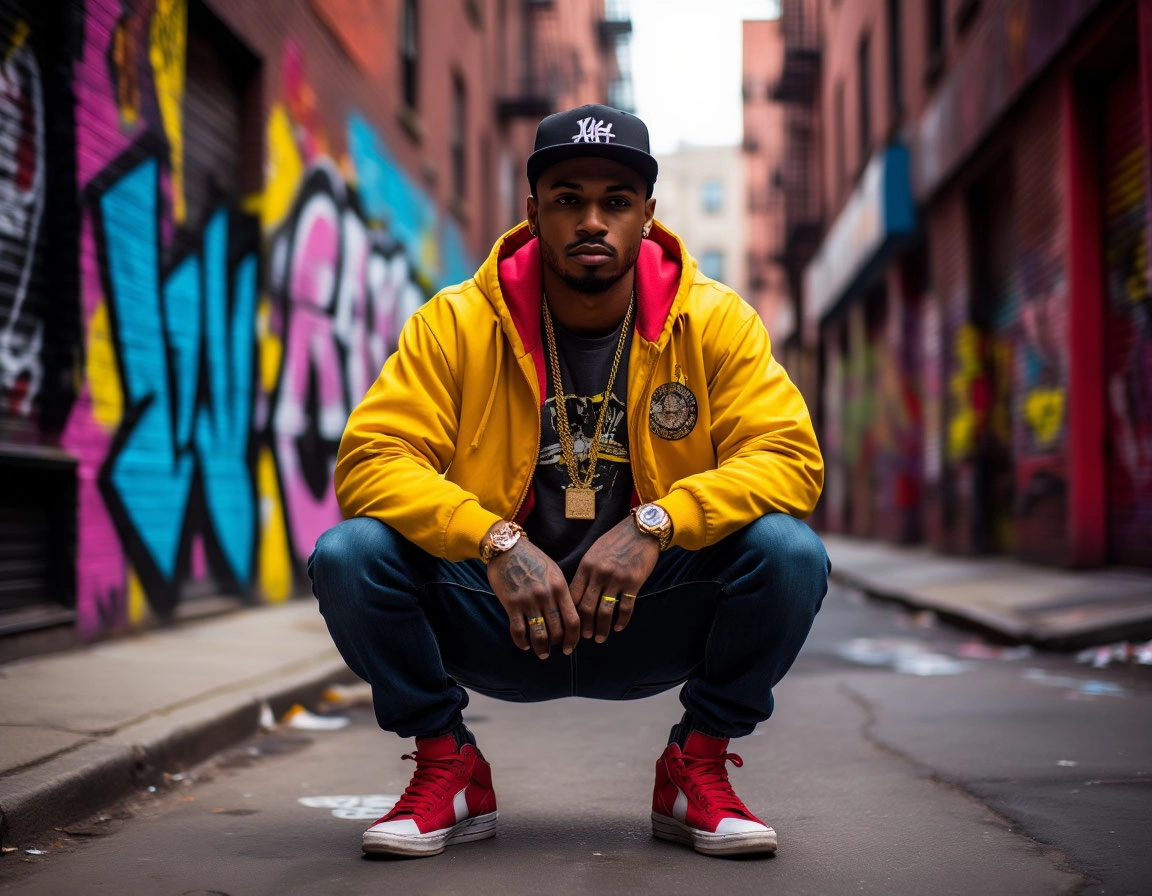
🔊 DJ Haram – Beside Myself (Hyperdub)
Genre: Experimental / Club / Electronic
DJ Haram’s debut album Beside Myself is an intense ride through dark club beats, haunting melodies, and Middle Eastern percussive rhythms. This 14-track LP includes collaborations with artists like Moor Mother, Bbymutha, and Armand Hammer, delivering a raw, genre-defying journey. The music is politically charged, spiritually haunting, and deeply danceable.
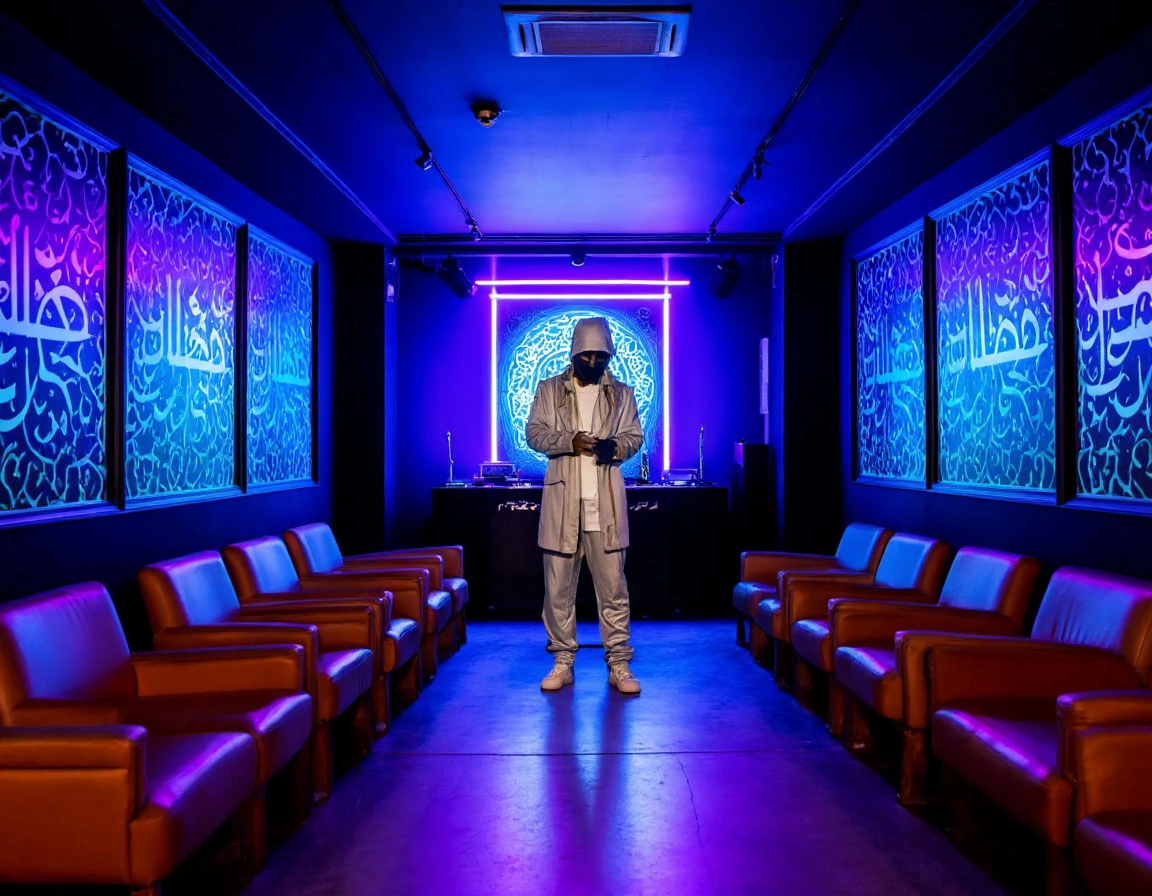
🔥 Che – Rest in Bass (10K Projects)
Genre: Trap / Hyperpop
Young Atlanta rapper Che drops his second album this year with Rest in Bass, a glitchy and energetic project filled with digital chaos and inventive flows. The track “Hellraiser” featuring OsamaSon stands out for its pixelated production and aggressive vocals. This release cements Che as one of the boldest new voices in the alt-trap movement.
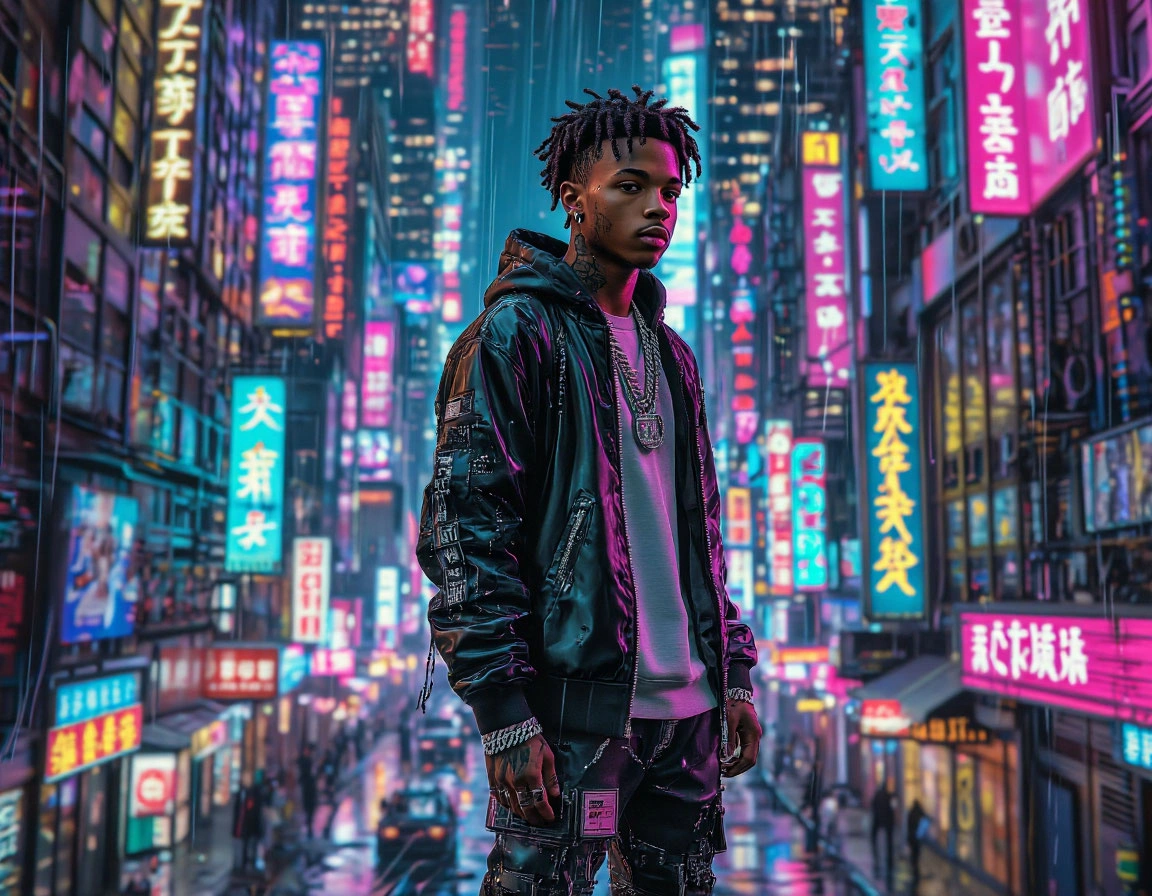
🎤 Anycia & DJ Drama – Grady Baby (UnitedMasters)
Genre: Southern Rap / Mixtape Culture
Atlanta’s rising voice Anycia joins forces with DJ Drama for the new mixtape Grady Baby, packed with confident flows and deep ATL roots. Songs like “No Scrub” nod to TLC’s iconic legacy, while the rest of the project pulses with smoky beats and minimalist trap instrumentation. Anycia’s low register and commanding presence shine across the tape.
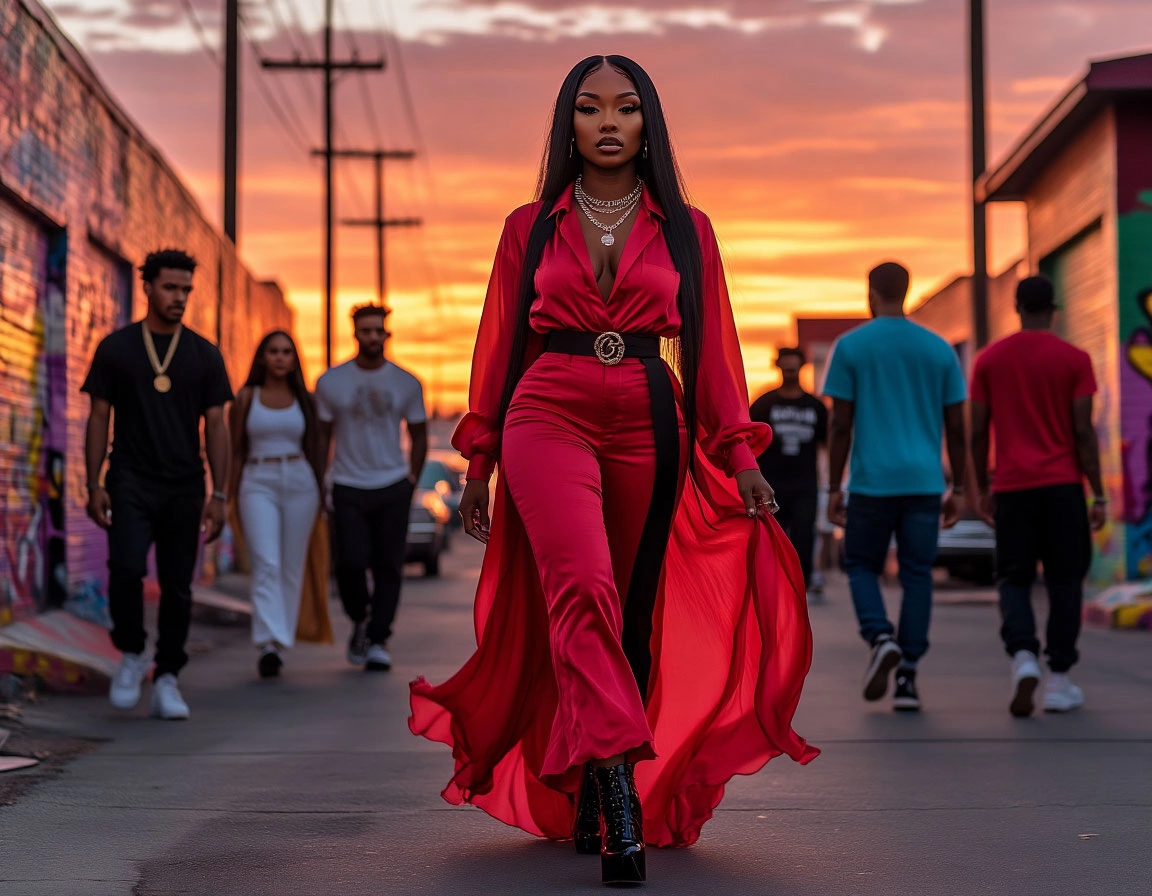
🌱 $ilkMoney – Who Waters the Wilting Giving Tree… (Lex)
Genre: Underground Hip-Hop / Funk
Yes, the album title is a mouthful: Who Waters the Wilting Giving Tree Once the Leaves Dry Up and Fruits No Longer Bear? But so is the music. Virginia rapper $ilkMoney offers psychedelic funk beats, off-kilter raps, and a philosophical outlook that balances satire and substance. The LP is his most ambitious since 2022 and includes producers like Kahlil Blu and Sycho Sid.

🌿 Sofie Birch & Antonina Nowacka – Hiraeth (Unsound)
Genre: Ambient / Experimental Folk
This beautiful ambient album was recorded during a nature retreat in rural Poland using only acoustic instruments, a tape machine, and voice. Sofie Birch and Antonina Nowacka then added synthesizers in post-production to create a dreamy soundscape. Their second collaboration, Hiraeth, blends natural textures with celestial vocals and electronic undercurrents.
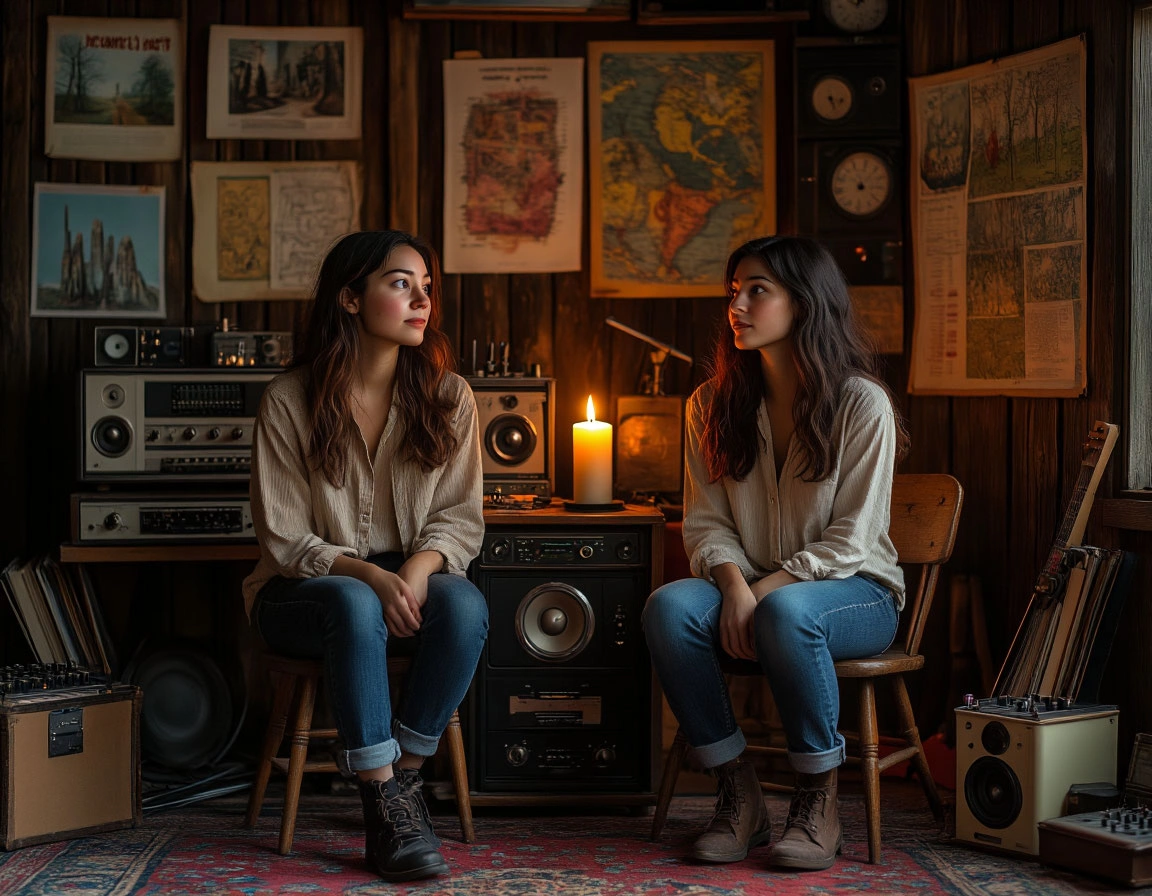
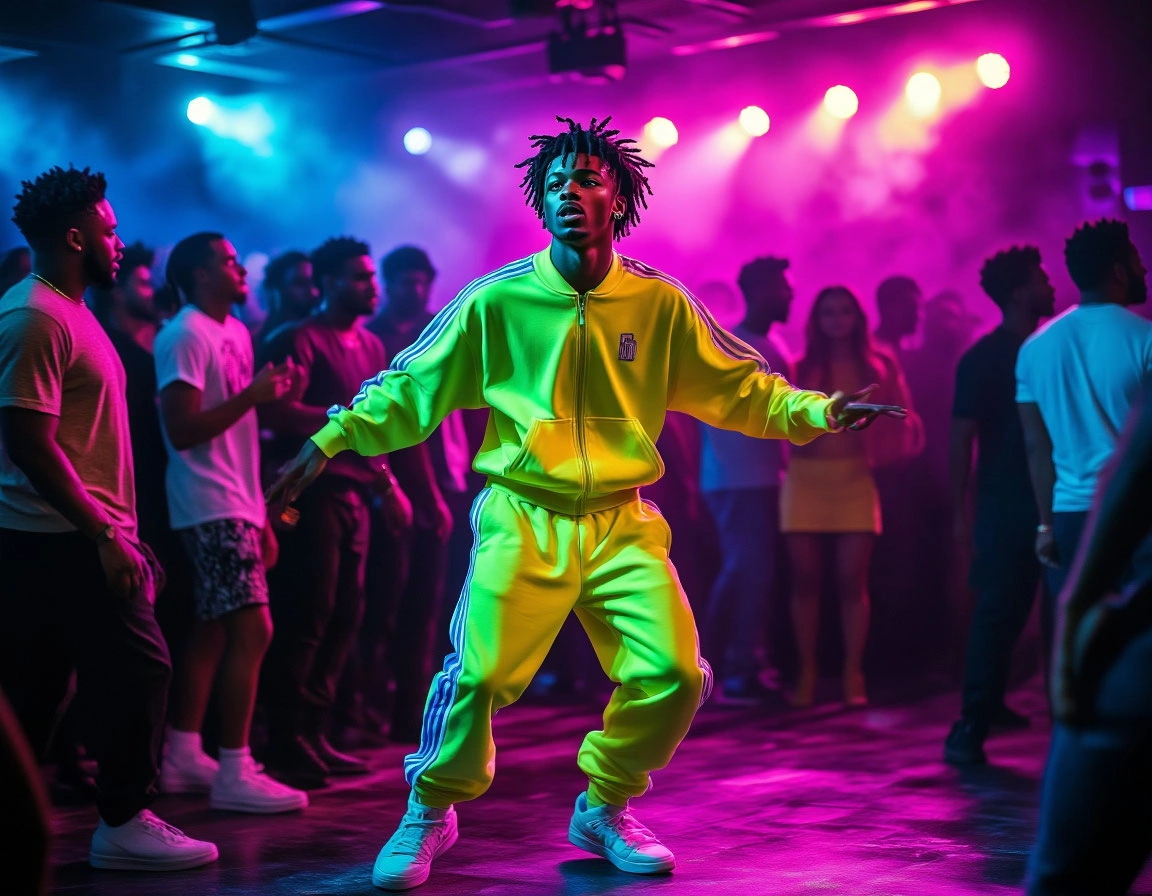
Tyler, the Creator has done it again. With the surprise release of his latest project, Don’t Tap the Glass, the genre-bending artist brings us a 10-track sonic burst that’s equal parts party, protest, and personal reflection. Released on July 21 without the usual single drops or promotional noise, this album is less about hype — and more about vibe.
Following his October release of Chromakopia, Tyler’s new album clocks in at just under 30 minutes. But within that short runtime, he manages to deliver a potent mix of sound and emotion, capturing what he calls a “dance-forward” spirit meant for movement — not overanalysis.
💃 The Spirit of Movement, Reclaimed
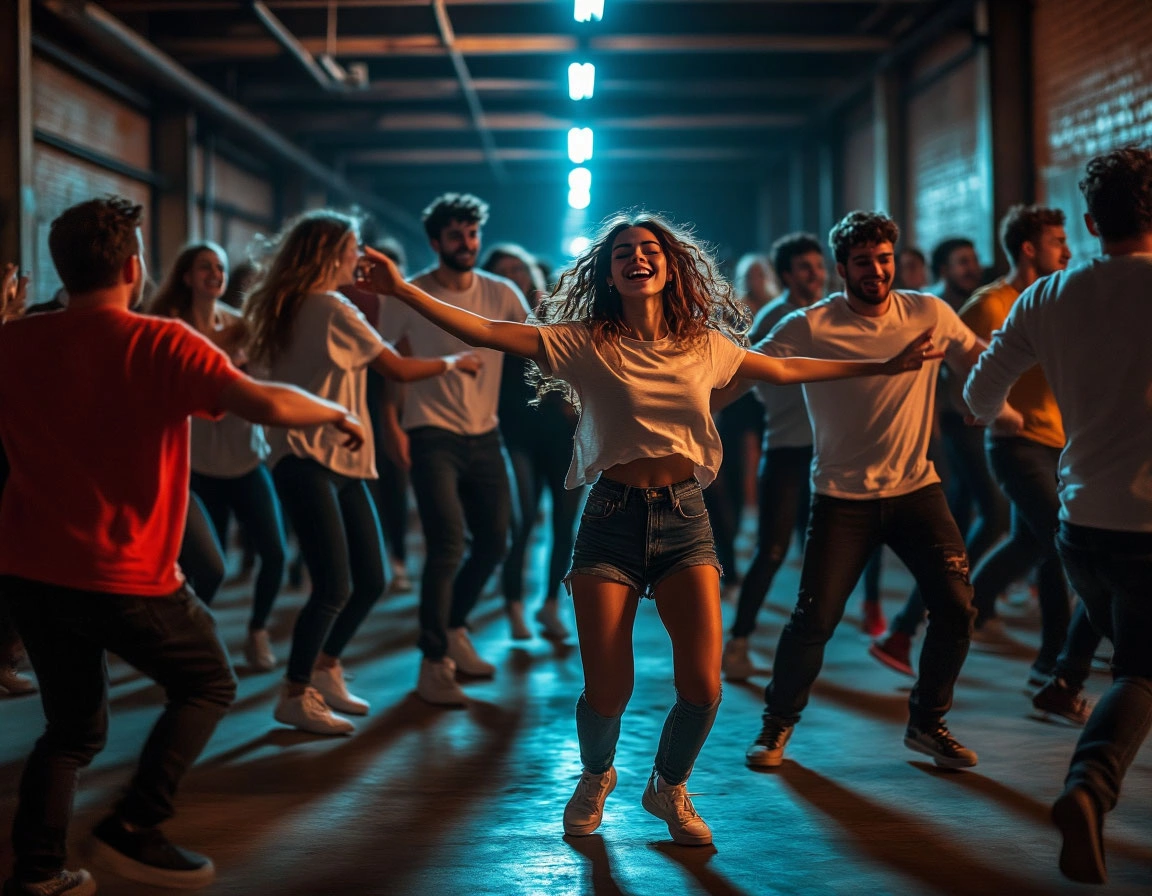
In a heartfelt note shared online, Tyler explained the concept behind Don’t Tap the Glass. It wasn’t born in a studio for streaming playlists — it was born in a room filled with people moving, sweating, and losing themselves in rhythm. At a no-phones-allowed listening party with 300 people, Tyler found what modern life often lacks: a room full of humans unfiltered, unafraid to feel.
“I asked some friends why they don’t dance in public,” Tyler writes. “And they said: fear of being filmed.” That fear — of becoming a meme, of being seen enjoying yourself too much — is the glass we’re not supposed to tap. But Tyler’s not here for quiet. He wants the room to shake.
🎧 Don’t Just Listen — MOVE

The album is intentionally built for action. Tracks like “Big Poe,” which opens the record with a Busta Rhymes sample and an unidentified guest verse, invite listeners to abandon stillness. The beats are infectious, layered, raw. There’s funk, bounce, and even a nod to early-2000s hip-hop energy. But Tyler’s deeper point is this: You won’t get it if you sit still.
“Dancing, driving, running — any type of movement is recommended,” Tyler insists. And with no pre-release singles and minimal marketing, he’s encouraging fans to experience the full record as a single breath — uninterrupted, uninhibited.
🚫 No Teasers, No Distractions
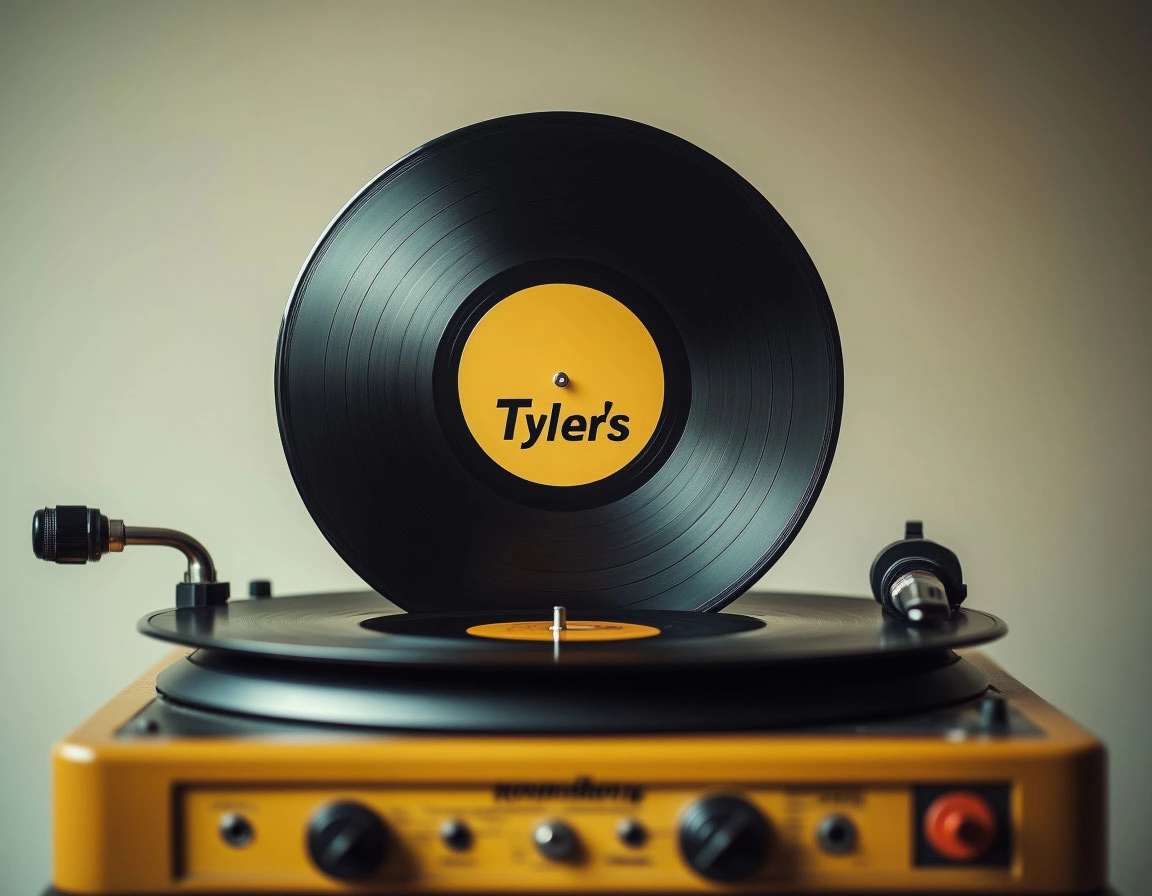
While Tyler has been known for tight album rollouts, Don’t Tap the Glass might be his most spontaneous drop yet. Unlike Flower Boy, IGOR, or Call Me If You Get Lost, which all had teaser singles and announcement windows of over a week, this album appeared almost out of nowhere — just a few cryptic social posts, and then boom: release day.
This stripped-back approach mirrors the raw energy of the album. No distractions. No filters. Just sound. Just motion.
🌍 Still Touring, Still Transforming
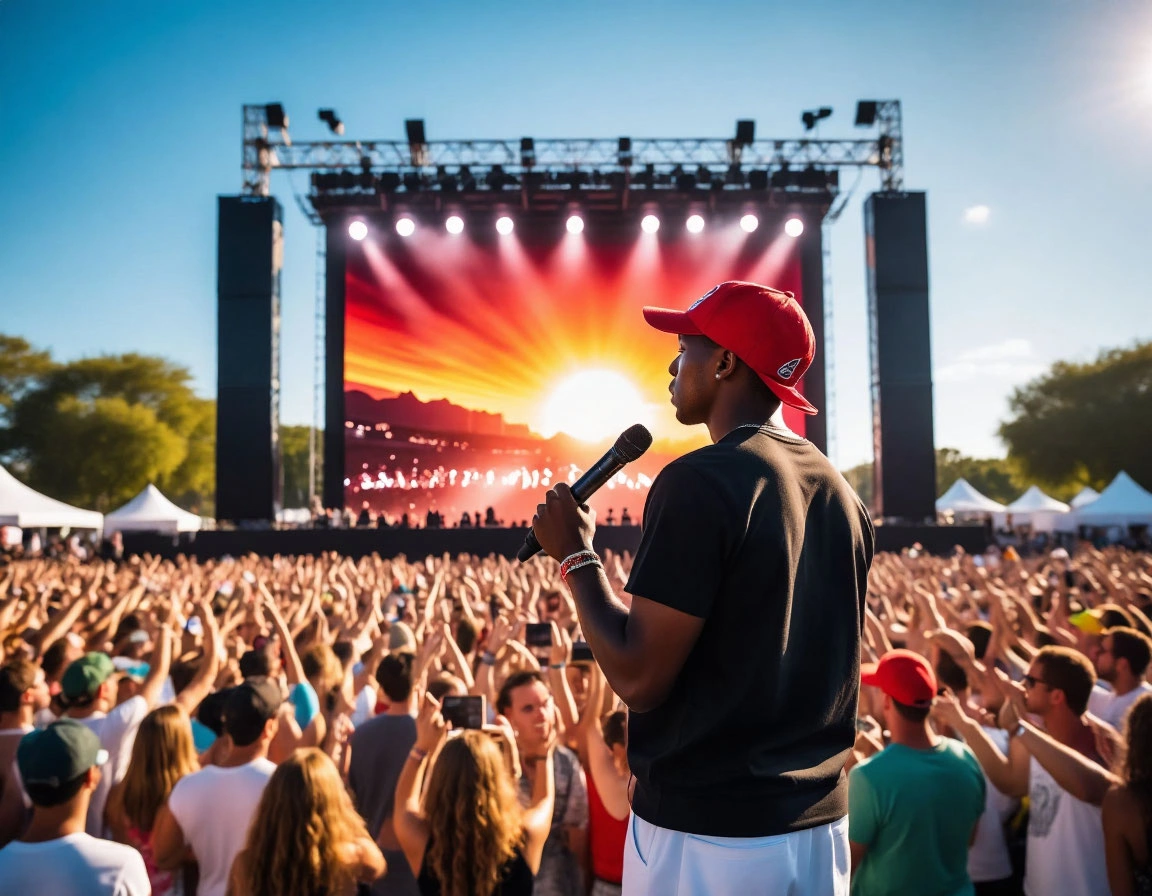
Even as Don’t Tap the Glass gains traction, Tyler is still deep into his Chromakopia world tour, with remaining dates across the U.S., Canada, New Zealand, Australia, and several major stops across Asia. He’s also set to headline key festivals like Lollapalooza and Outside Lands, where fans may get a live taste of this dance-heavy new material.
It’s a bold time in Tyler’s career — one foot in high-concept art and another on the dancefloor.
🕺 Why This Album Matters
In a world where authenticity is often punished and vulnerability goes viral, Don’t Tap the Glass is a manifesto. It says: move anyway. Laugh anyway. Dance anyway. Even if someone’s watching.
With no official credits revealed yet and tracks still being unpacked by fans, Tyler is letting the music speak first. And the message is clear: break the glass, get up, and dance like no one’s recording.
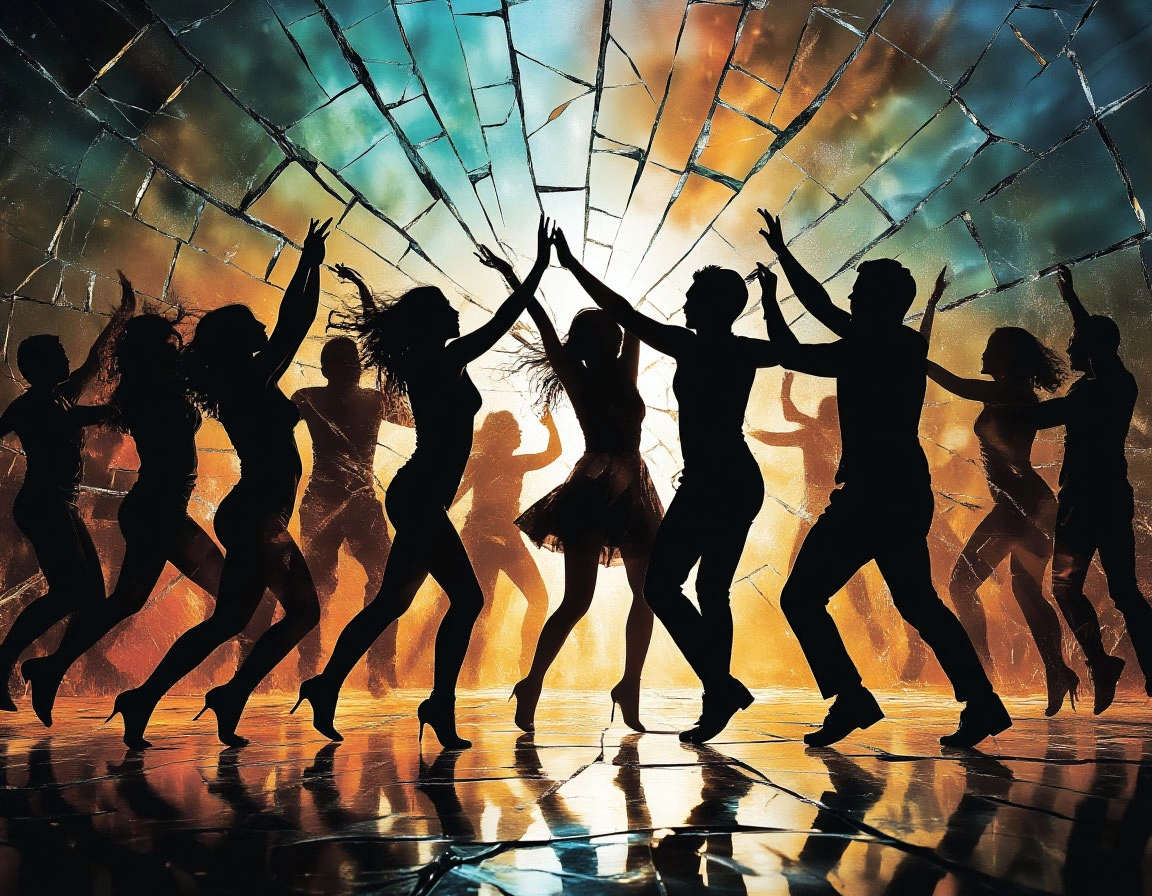
🎵 Recommended Listening Experience:
Put on your best headphones or blast it through your car stereo. Turn it all the way up. Go for a run. Dance in your living room. Let go — that’s what Tyler wants you to do.
Track Highlights (Unofficial):
- “Big Poe” — Bold opener featuring Busta Rhymes sample and mystery guest
- “Dimeglass” — Infectious rhythm with club energy
- “Sweatroom” — Evokes the album’s release party energy
More details will no doubt emerge, but for now — the dance floor is open.
Music is not only a form of art — it’s also a powerful stimulus for brain development. Modern scientific research confirms that sounds, especially music, can influence a baby’s growth even before birth. By the 16th to 20th week of pregnancy, the fetus begins responding to sounds, and by 26–28 weeks, it can distinguish rhythms, tones, and even recognize the mother’s voice.
When an expectant mother listens to calming, harmonious music — particularly classical or natural sounds — her stress levels decrease, her heartbeat stabilizes, and her breathing slows. These physiological effects positively impact the baby: the fetal heart rate becomes steadier, stress hormones like cortisol are reduced, and the baby experiences a sense of safety and calm.
Music also stimulates the baby’s sensory and neurological development. Rhythm and melody activate the auditory areas of the brain, promoting the formation of neural pathways. Some studies suggest that regular exposure to music during pregnancy may influence future cognitive abilities — such as memory, language development, and concentration.
Interestingly, newborns can recognize melodies they heard in the womb. This suggests that musical exposure before birth leaves a lasting subconscious imprint. Familiar melodies can later comfort and soothe the baby, creating a sense of continuity and emotional security.
However, it’s important to note that loud, sharp, or aggressive music may cause discomfort or restlessness. The best choices are gentle compositions with steady rhythms and positive emotional tones.
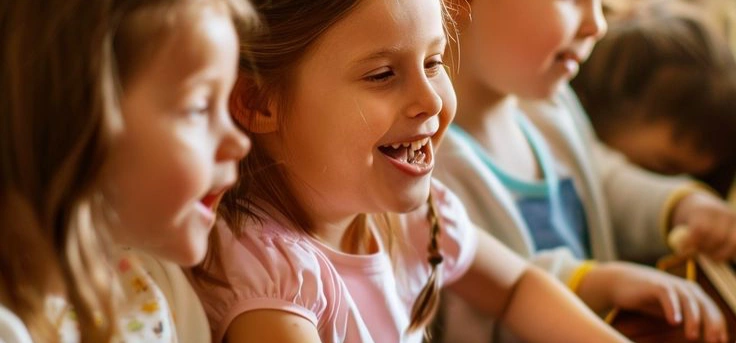
Music is more than a form of artistic expression — it’s a profound and powerful tool that can influence brain development, even before a baby is born. Today’s scientific research supports what many cultures have long intuited: that sound, particularly music, plays a meaningful role in fetal development and early emotional bonding.
By the 16th to 20th week of pregnancy, the fetal auditory system begins to function, allowing the baby to respond to external sounds. Around 26 to 28 weeks, the fetus becomes increasingly sensitive to sound and can distinguish between different rhythms, tones, and even voices. One of the most important sounds a baby becomes attuned to is the mother’s voice — a sound that becomes deeply familiar, comforting, and foundational to early bonding.
When an expectant mother listens to calming, harmonious music — such as soft classical pieces, lullabies, or natural ambient sounds (like ocean waves or birdsong) — her body often responds with reduced stress levels, more stable heart rate, lower blood pressure, and slower, deeper breathing. These physiological changes create a more tranquil internal environment for the baby, with benefits including:
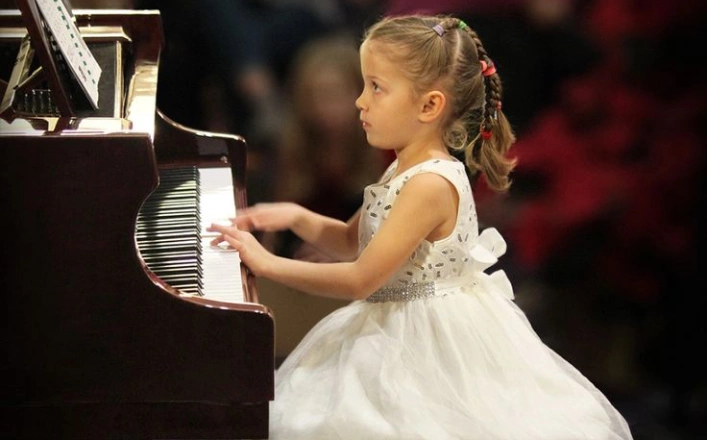
- A steadier fetal heart rate
- Lower levels of stress hormones such as cortisol
- A general sense of safety and calm, communicated through hormonal and physiological pathways
In essence, music not only soothes the mother — it also soothes the baby.
But the impact of music doesn’t stop at emotional regulation. Neurologically, music serves as a powerful stimulus for fetal brain development. Rhythmic patterns, pitch changes, and melodic structures activate the auditory cortex of the developing brain. This early stimulation helps in forming neural connections, laying the groundwork for cognitive skills later in life. Some studies suggest that babies who were regularly exposed to music in utero may show earlier development in areas such as:
- Language and verbal memory
- Concentration and attention span
- Emotional self-regulation
Perhaps one of the most fascinating findings is that newborns can recognize and respond to melodies they heard in the womb. This means that prenatal exposure to music creates a kind of subconscious memory, which can later be used to comfort and soothe the baby. Familiar tunes played during pregnancy can become part of a baby's emotional landscape — helping them feel connected, secure, and calm even after birth.
However, it’s important to be mindful of the type of music used during pregnancy. Loud, chaotic, or jarring music — especially with sudden changes in volume or tempo — can create unease or even disturb the baby’s rest patterns. The most recommended music for expectant mothers includes:
- Soft classical compositions (like Mozart or Debussy)
- Peaceful instrumental music
- Gentle lullabies
- Nature sounds, such as rainfall or birdsong
- Culturally meaningful music that evokes positive feelings
It’s also helpful to keep the volume moderate — around 60 to 70 decibels (roughly the sound of a normal conversation). Using headphones on the belly is not advised, as it may overstimulate the baby’s developing ears.
Music during pregnancy is not just entertainment — it’s connection. It nurtures emotional bonds, supports brain development, and creates a shared experience between mother and child. Whether through soft singing, gentle melodies in the background, or simply humming during daily routines, these musical moments become part of a baby’s first world — one filled with warmth, rhythm, and love.
In the symphony of life, music is one of the earliest and most meaningful notes.